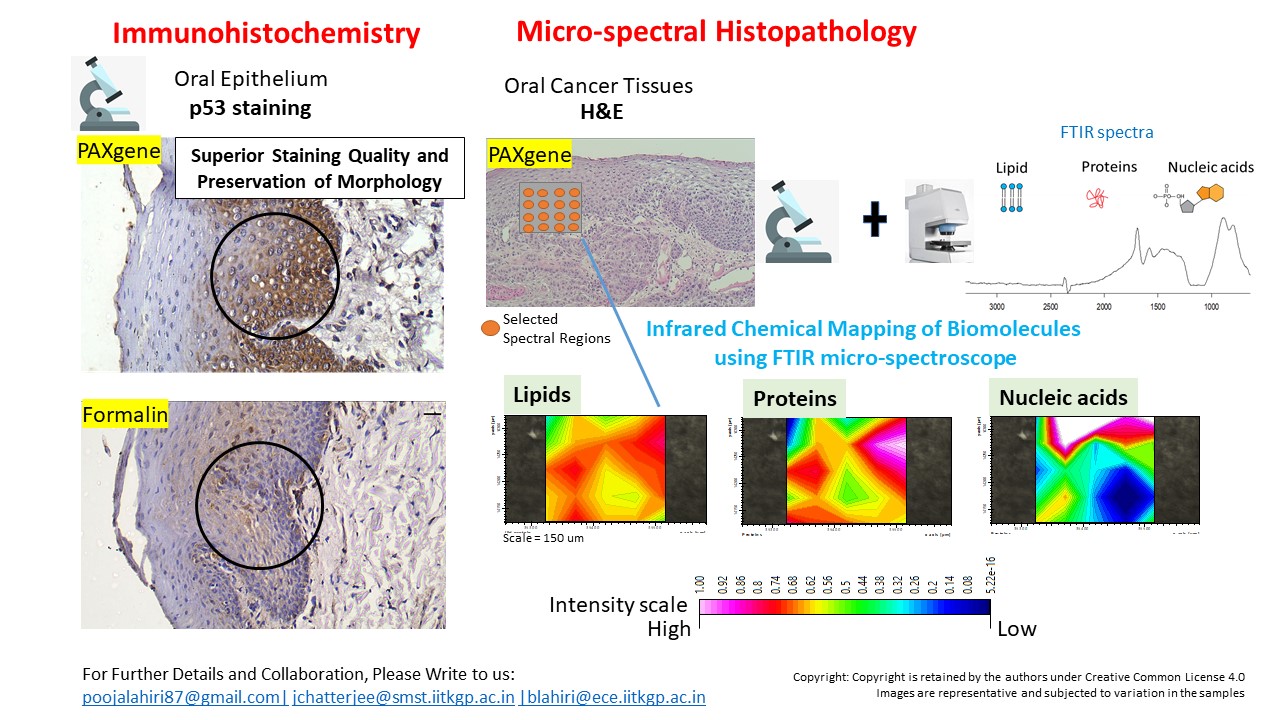
PAXgene for molecular diagnostics applications on oral pre-cancer and cancer tissues—described by IIT Kharagpur researchers for the first time in India
Recently, a scientific study has revealed the applicability of a new, non-toxic, formalin-free tissue fixation system PAXgene (QIAGEN-PreAnalytix, Germany) in studying oral pre-cancer/cancer biopsies with an aim to reduce processing damage incurred by conventional formalin-fixation and improve the quality of molecular pathology assays. Dr. Pooja Lahiri, the Postdoctoral Fellow at School of Medical Science and Technology (SMST) and Professor Jyotirmoy Chatterjee, Head of SMST along-with senior authors, Professor Basudev Lahiri and Professor Shailendra K Varshney from Electronics and Electrical Communication Engineering at IIT Kharagpur , said — “To the best of our knowledge, we are the first research group in…
